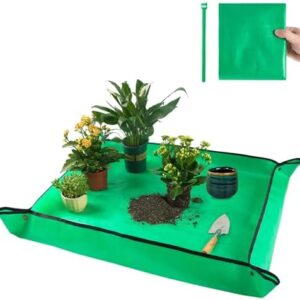If you’re someone who loves the idea of growing your own fruits and vegetables while also being conscious of the environment, organic gardening is likely the perfect hobby for you. Not only does organic gardening allow you to enjoy fresh and pesticide-free produce, but it also helps promote sustainability and protect the earth’s ecosystem.
While organic gardening may seem daunting at first, it doesn’t have to be complicated. With a few tips and tricks, you can successfully grow your own organic garden right in your own backyard. Here are some helpful suggestions to get you started:
1. Prepare your soil: Before you start planting, it’s crucial to prepare your soil properly. Organic gardening relies on fertile and healthy soil to produce thriving plants. You can improve your soil quality by adding compost, manure, or other organic matter to enrich the soil with essential nutrients. Make sure to test your soil’s pH levels and adjust as necessary to create an optimal growing environment for your plants.
2. Choose the right plants: When selecting plants for your organic garden, choose varieties that are well-suited to your climate and growing conditions. Consider native plants or heirloom varieties, as they often require less maintenance and are more resistant to pests and diseases. Additionally, plant a mix of vegetables, herbs, flowers, and fruits to create a balanced and diverse ecosystem in your garden.
3. Companion planting: Companion planting is a traditional gardening practice that involves planting certain crops together to help minimize pests, improve soil health, and enhance overall plant growth. For example, planting marigolds near your tomatoes can repel pests, while growing basil near your peppers can improve their flavor. Research companion planting strategies to maximize the benefits of your organic garden.
4. Mulch: Mulching is an essential component of organic gardening as it helps retain moisture, suppress weeds, and add nutrients to the soil. Organic mulches such as straw, wood chips, or compost can help regulate soil temperature, prevent erosion, and create a healthy environment for your plants to thrive. Make sure to apply a thick layer of mulch around your plants to provide them with the necessary protection and support.
5. Watering: Proper watering is crucial for the success of your organic garden. Be mindful of the watering needs of your plants and water them deeply and infrequently to encourage strong root growth. Consider using a drip irrigation system or soaker hoses to deliver water directly to the roots without wasting water through evaporation or runoff. Avoid overhead watering, as it can lead to the spread of diseases and pests in your garden.
6. Pest control: Dealing with pests is a common challenge in organic gardening, but there are several natural methods you can use to manage pests effectively. Encourage beneficial insects like ladybugs, lacewings, and bees to help control pest populations in your garden. You can also use homemade remedies such as garlic spray, neem oil, or diatomaceous earth to deter pests without harming the environment or your plants.
7. Crop rotation: Crop rotation is a sustainable farming practice that involves rotating different crops in the same area each season to improve soil health, prevent diseases, and maximize yield. By rotating your crops, you can disrupt pest cycles, replenish soil nutrients, and reduce the risk of soil-borne diseases in your garden. Plan your crop rotation schedule carefully to ensure a healthy and productive garden year after year.
8. Harvesting and storage: When it comes time to harvest your fruits and vegetables, make sure to pick them at the peak of ripeness for the best flavor and nutritional value. Use sharp and clean tools to harvest your produce to avoid damaging the plants or introducing pathogens. Store your harvested crops in a cool, dry, and well-ventilated area to prolong their shelf life and preserve their freshness.
Organic gardening is a rewarding and fulfilling hobby that allows you to connect with nature, promote sustainability, and enjoy the fruits of your labor. By following these tips and tricks for successful organic gardening, you can create a healthy and thriving garden that will provide you with fresh and nutritious produce for years to come. So roll up your sleeves, dig in the dirt, and start growing your own organic garden today. Your body, mind, and the planet will thank you for it.






